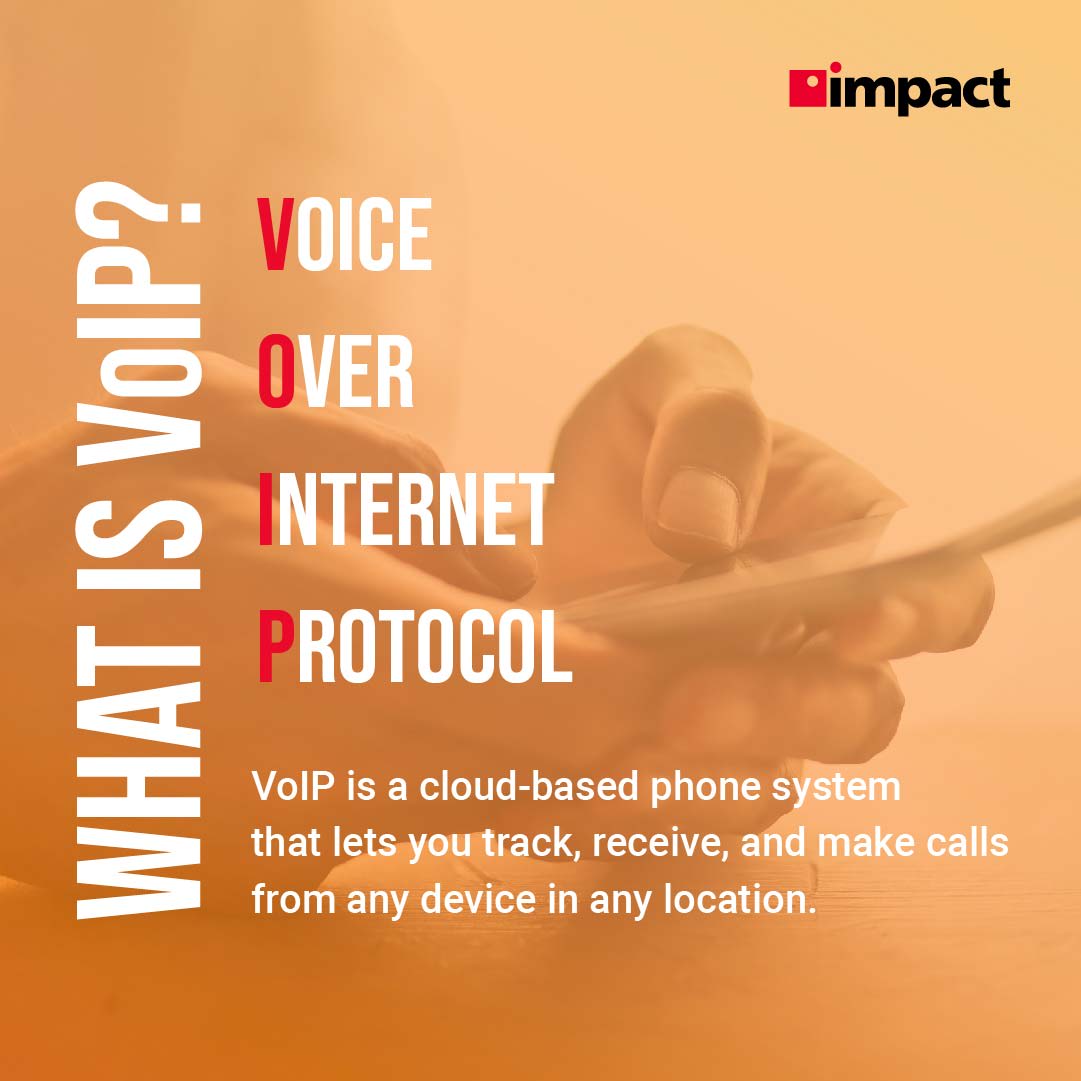If you’re tired of typical landlines limiting your team, it might be time to upgrade to a cloud phone system, aka VoIP.
VoIP is completely cloud based and lets teams answer calls from wherever they are via their connected devices.
Learn more about VoIP, what it is, what it means, and some of its best features and benefits in this video or through the blog post below.
What is VoIP?
VoIP is a cloud-based phone system that helps businesses become more flexible with how they handle business phone calls.
A VoIP system can be implemented entirely digitally and lets workers use company (or personal) devices—such as tablets, phones, laptops, computers, etc.—as their office phone.
This means being able to take calls, transfer calls, and check messages from anywhere, rather than being tethered to a desk.
Related Post: What is Unified Communications as a Service?
How Does VoIP Work?
VoIP works just like a standard phone system but it’s fully digital and cloud based.
This means that users receive a real VoIP phone number, but calls will be sent to a computer, phone, tablet, or other device via the provider’s app.
What Does VoIP Stand For?
VoIP stands for Voice over Internet Protocol, which is effectively a more technical way of saying “internet phone call.”
Features of a VoIP Phone System
VoIP phone systems provide tons of useful features for business of all sizes to help manage your calls, communicate with colleagues and customers, and generally conduct business on the go. Here is a quick rundown of what you can generally expect:
- Automated Attendants: This feature can answer calls, transfer them to appropriate members of your team, and generally act as your digital secretary. You can assign a pre-recorded message for the attendant and customizable greetings for a more human touch, too.
- Call Forwarding: Make sure nobody who calls your business is left in the cold with an automated or manual forwarding feature that redirects callers to other extensions or numbers.
- Call Hold and Transfers: For companies with high call volume, this feature will help you manage them all by allowing you to place callers on hold or to transfer them to other numbers.
- Call Recordings: Whether it’s a big client meeting or an important internal one, the call recording feature allows you to revisit them to jot down notes, discuss with colleagues, or just to document for future use.
- Caller ID and Screening: You’re probably familiar with the basics of caller ID and all of those basics can be found in a cloud phone system. Know who’s calling, where they’re from, what they want, and decide if you want to take the call.
- Voicemail: Store, check, and manage voicemails. This feature also lets you customize your voicemail greeting and generate automated transcripts of voicemails.
- Call Flipping: Seamlessly move a call from one device to another. With call flipping, you can start a call on your phone and transfer it quickly to your computer without dropping or sacrificing quality.
- Integrations: VoIP systems integrate with many different business tools to help you track callers, store information, and more.
- Conferencing: Hold audio meetings with dozens of team members at once.
- Texting: Send and receive text messages on your business phone. This can be very helpful when setting up text message marketing campaigns or for easy communication with clients and customers.
- Analytics: VoIP platforms provide a lot of tools to help you track and analyze call analytics for many purposes such as marketing or sales.
Benefits of Using VoIP in Your Business
There are many benefits to implementing a cloud-based VoIP phone system into your business.
Here is a quick look at a few of those benefits and how they can make a big impact on your business.
1. Save Money
Every business wants to save money by cutting costs and implementing VoIP into your organization can do just that by eliminating the high cost of a landline and the costs of buying, maintaining, and upgrading the hardware required.
VoIP plans can cut your phone bill in half in most cases with cheaper lines and allowing your workforce to use their own devices or company computers as their phone.
If you have a fully or partially remote workforce, this is invaluable.
2. Increase Your Accessibility and Flexibility
Speaking of remote workforces, VoIPs allow your team to take calls, check voicemails, leave messages, and do business over the phone from anywhere, rather than being limited to the tiny range of a landline system.
Leaving the office never disconnects you from your customers or coworkers with a cloud-based VoIP phone system.
3. VoIP is Easily Scalable
The scalability of a VoIP system is one of its most attractive advantages because it means that your phone system can scale up or down with your needs. Have a quarter of huge growth? Easily bring new team members into the fold without having to order new equipment and setup new lines.
This increased agility ensures that your phone system never becomes a roadblock of growth
4. High Call Quality
With a stable internet connection, VoIP delivers a crisp, clear voice call without latency, lag, or dropped call issues.
You’ll rarely run into spotty connections or poor audio quality as long as you always have a steady connection to the internet.
Bottom Line
Implementing VoIP into your business is a great way to save money on your phone system and to improve your workforce’s flexibility and productivity by providing an easy-to-use, agile way to manage how they receive, track, and make business calls every day.
Reach out to Impact today to speak with an expert on how you can utilize VoIP in your business today.
